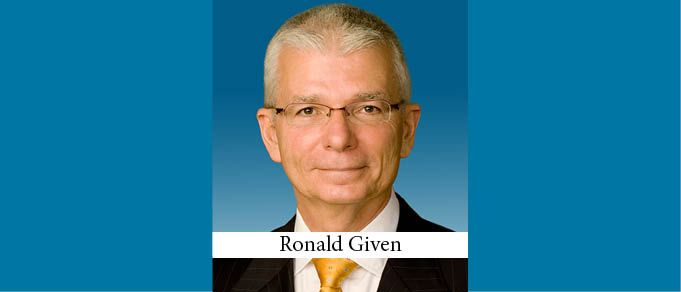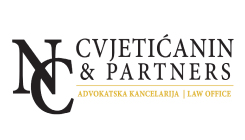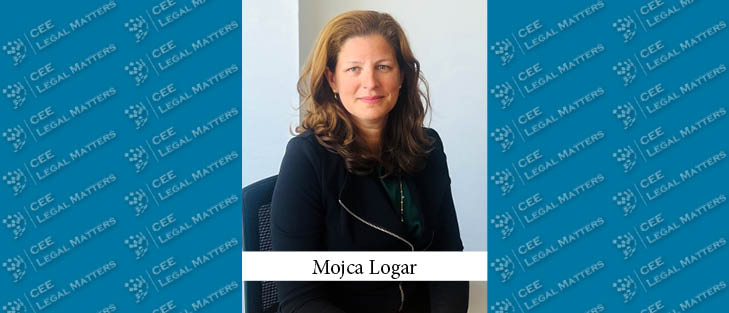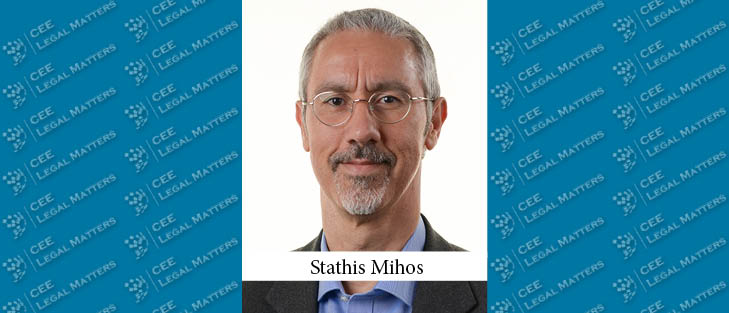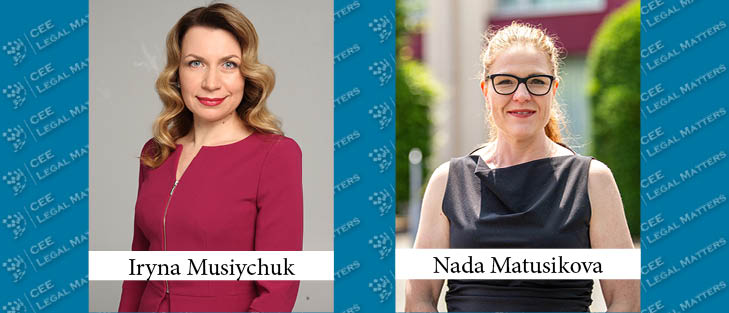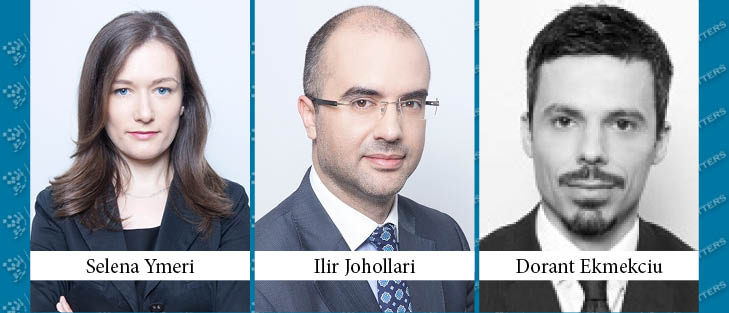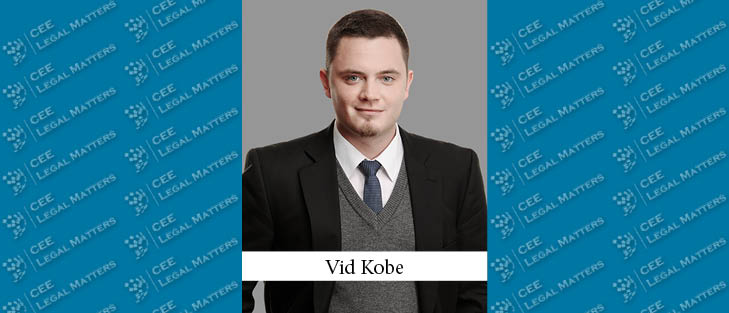CEE Legal Matters has learned that, after ten years in CEE, and shortly after attending the annual Deal of the Year Awards Banquet in Budapest, Wolf Theiss Warsaw Co-Managing Partner Ron Given – a key member of the Deal of the Year Final Selection Committee, as he was last year – will be bidding adieu to the region and heading back home. We reached out to Given, a long-time friend of and supporter of CEE Legal Matters, to learn more, and to get his thoughts on a productive, profitable, and geographically-diverse decade in Central and Eastern Europe.
CEELM: So, after more than a decade with Wolf Theiss in the CEE/SEE, you’ve announced that you will be heading home to Chicago at the end of March. Remind us how this extended tour began, can you?
Given: I had spent about thirty years with a good international law firm named Mayer Brown. Although I was always based in Chicago, my corporate and finance practice had a distinct international flavor. I represented many UK, European, and Asian clients as they invested in the States and then helped them with ongoing operations. It was always fun, whether it involved UK companies buying lignite properties in Louisiana, Italian companies running into problems with their domestic distribution of wines, German companies buying auto part makers in Detroit, Austrian companies buying metal fabricators in Tennessee, or Swiss companies buying tech start-ups in Silicon Valley. I also had the chance to help manage Mayer Brown’s Tokyo office and to participate in its early efforts to make good on opportunities arising in China. After Mayer Brown, I served as the general counsel for a listed international insurance company (a former client) based in Bermuda. That was an equally enriching experience (involving, for one thing, a tender offer for a Lloyd’s syndicate), but I had an itch for something else that just wasn’t being scratched. Then I received an email from a recruiter in this part of the world (the timing was perfect) and the rest is history!
CEELM: What do you mean?
Given: Well, it was sometime in the summer of 2008 that I received an email about a Vienna-based law firm called Wolf Theiss, an outfit I had never heard of but was assured was first-class, that was looking for a “senior”-type European or American lawyer to join them in Vienna and to commute to Zagreb (a place I had never been) to help manage its operation there. I was working late at home and remember very vividly turning to my Japanese wife and saying, “Croatia, Croatia, there was a war or something there once, wasn’t there”? I am a man of the American Midwest and, frankly speaking, things Central Europe just do not dominate our radar screens. After being briefed (and a bit ridiculed) by my wife, who for some reason was a treasure trove of knowledge about Croatia, I responded that if I wanted to commute for a living I would just keep the job I had (I was traveling essentially every week), but that if I could live in Zagreb (a place I had never been, remember) then I would consider the job. In that I was changing the specs a bit I thought I might not hear back. But they did come back to me, and within days they had me flying to Vienna to be interviewed by Wolf Theiss partners.
Once I had an offer the Vienna guys were ready to go – but I pushed back. I told them they should not select me before sending me to Zagreb to be interviewed by the associates there and that they should be given the final say about my suitability. As you might imagine, this approach did not entirely align with the Austrian mindset (and probably was their first inkling that I was a slightly different animal than that to which they are accustomed!), but I felt this was the only way to assure local buy-in. As it turned out, I managed to pass muster with the Croats, as well.
CEELM: So it turned out to be an easy decision?
Given: Not really. You have to remember this was the summer of 2008. The world was about to change in ways no one could predict. I recall flying back to Chicago with my wife after the Zagreb vetting and asking her why I should do it. I said I liked everyone I had thus far dealt with at Wolf Theiss but would be giving up a known work life (including a bunch of stock options) for something very different. I recall my wife, who was and is more broadly traveled than me, looking at me and sweetly saying, as perhaps only a spouse could: “Ron, you are getting too old to pass on opportunities like this. We don’t need those stock options. You claim to be ‘international’ but you really don’t become international by flying into places like Tokyo and staying at the Imperial for a few weeks. You need to actually live overseas.” I have to say I was a bit taken aback by the approach, encouraging me to do something on the grounds that I was getting old! Although it was very good advice, in perhaps the way of men I could not immediately agree with it. But I eventually did and it was one of the best decisions I ever made. So, in October of 2008, I packed up for Zagreb. I spent my first night there in an apartment that had been rented for me and the biggest challenge of my first working day was remembering where the office was – I eventually found it after some stumbling around!
CEELM: What’s the moral of all this, so far?
Given: I suspect my wife would say that the primary lesson is that one should always listen to one’s spouse! While I wouldn’t disagree with that, I would also say that you just have to be open to a little serendipity in life. I should have been clued into that a little earlier than I was given how I started at Mayer Brown in 1978. I knew it would be a long shot when I signed up for a law school interview. My first surprise was that I actually got an interview slot. The morning of my interview I was walking to the law school (carrying the only suit I owned, bought on credit, in a garment bag slung across my back) through a little woods that surrounded it, when I came upon a guy immaculately dressed in a pin-striped blue suit and obviously very lost. I asked him if he was looking for the law school. He said he was and I told him he could walk with me because I was headed in that direction. As we made our way he asked me how I knew he was looking for the law school. It really wasn’t that hard given the way he was dressed and I simply replied: “You look like a lawyer.” He beamed a smile ear to ear. It turned out he was the Mayer Brown partner that was to interview me that day. I obviously had stumbled upon a very receptive part of his ego and he subsequently kept after me relentlessly until I accepted Mayer Brown’s offer. So, I can only suggest if you happen to get lucky, go for it!
CEELM: Coming back to the present: You have been to more places than Zagreb for Wolf Theiss, right?
Given: Correct. I was the Managing Partner in Zagreb until 2013. From 2013 through 2014 I assumed a Senior Partner role in Prague and Kyiv, and, in 2015 I took up a Managing Partner role in the Warsaw office.
CEELM: What exactly did you do at each stop?
Given: In each office the goal was essentially to replace myself. I worked on really integrating each office into the whole firm, sharpening the talents of existing personnel (always very young), bringing in fresh talent, and hustling for new work.
CEELM: What was the biggest challenge?
Given: People, of course, as they are the critical element of any service firm’s success. Basic legal ability was usually not a problem. More times than not I have had very good people to work with. The challenge has been to get those people to be more commercially and marketing-oriented. That has not been so easy, but the dramatically improved numbers of every office I have passed through show that I have had some success in that regard. No matter what, I at least managed to move the needle.
CEELM: How did you do it?
Given: Essentially by example (like making it a point to have a good LinkedIn profile) combined with a whole lot of persistence and pushing. During my years at Mayer Brown I never left the office for my long commute home unless I convinced myself that, in addition to doing the work on my table, I had done two things: Something that improved myself professionally (like reading an article on new legal developments) and in some way having reached out to a client or prospect in regard to potential future work (even something simple like sending them an article that I thought they might be interested in). I have never convinced anyone else to be so intense in their efforts (and maybe that’s for the best), but I know I have in fact impacted the thinking of many. In Warsaw, for example, the target agreements of even our most junior lawyers have a business development component. For the more junior ones, the target simply requires them to participate in the business development efforts of others. We keep the essential team component for the more tenured associates, but for them we add the element of actually initiating efforts. We have also required a business plan when considering even rather junior hires and expect them to include business development ideas in their plan. It’s never too early to start. Having spent time as a general counsel (a role everyone should have at least once for no other reason than being amazed at how many “friends” pop out of the woodwork), and being on the receiving end of many a pitch, I also know that you don’t have to be that good at selling yourself to be better than most lawyers.
CEELM: Any other thoughts on business development?
Given: Many of our engagements come to us these days on a “transactional basis.” We are more or less herded together to “bid” on a matter, with the prize usually being awarded to whoever manages to bend down the lowest. But real relationships still matter and you overlook developing them at your peril. The recent Hisense takeover of Gorenje – one of Wolf Theiss’ and the region’s largest deals in 2018 – is a good example of this. Some 20 years ago a young Chinese business-woman (who I had only met once) emailed me (yes, we did have email that long ago, although it was on our desktops not on our phones!) saying she had been admitted to the University of Chicago’s MBA program but, with less than two weeks to go before classes were to start, her visa had been denied for unknown reasons and she wanted to know if I would help her. Everything in me told me I should not get involved. For one thing, I did not know anything about visa work. But the situation seemed so unfair that my better angels got the best of me. I found a colleague at Mayer Brown who knew the person in charge of the visa office in Beijing and he reached out with the simple request that we be told what the problem was and be given the opportunity to fix it. The decision was immediately reversed (without explanation) and that young lady got her MBA and has gone on to a very successful investment banking career in Hong Kong. Hisense is her client and when they needed Slovenian counsel to buy Gorenje she called me up and asked me whether we could help – it did not take a genius to know the right answer to that question! Another example is the large number of international interns that I was responsible at Mayer Brown over the years. Oh, how my partners got on me about the cost of that activity. Well, many of them have also gone on to become very successful in business and have sent me lots of good work, getting a kick, I think, about the opportunity to be the boss of their former boss. You just need to keep the long term in mind as you bugger through the day-to-day grind. What goes around truly does come around. Law firms still drop the ball a lot in this regard.
CEELM: Is there anything you would do differently, looking back on these ten years in the region?
Given: You always have to keep learning and adjusting in response to the hand you are dealt. A self-imposed pressure in each of the assignments I have undertaken is that I targeted an aggressive timeline to accomplish what needed to be done before moving on, so I always felt like a “ticking clock” was dangling over my head. I made retention and hiring decisions based on what I thought would be good for the firm, the office and the candidate, a particular hole I was trying to patch at the time, and, frankly speaking, on what I could afford – never, though, based on personal preferences or who I thought would be the easiest for me to deal with. All of this sometimes led me to perhaps push a bit too hard (with occasional “shock and awe”!) and appear to ignore cultural differences. I forget which Dirty Harry movie it comes from, but I have often reminded myself of Clint Eastwood’s advice that “a man has got to understand his own limitations.” Pulling me the other way is a tendency not to see things as they are but as they could be. Whether or not I ever got too close to the edge, my goal was never to make, for example, a Ukrainian lawyer an American lawyer. I wanted those Ukrainians to be very good Ukrainian lawyers who would be always be welcomed as an equal in the very competitive international market.
CEELM: What was the most satisfying part of the job?
Given: Although I have spent a lot of time on marketing and management (particularly in Warsaw), I have made it a point to “keep my fingers on the strings” of actually practicing law whenever I could. Doing deals and client work is still as much fun for me now as when I started in the game in 1978. It’s what makes me come alive, I think. That said, it has also been great to watch individuals among the lawyers and staff I have managed and mentored as they have developed and progressed professionally. There are scores of lawyers within Wolf Theiss that have really come up through the ranks during my tenure, all the way to equity partner. In the end such are the things that really endure as accomplishments. One other thing comes to mind. During my first year in Zagreb I made the decision to let three of our most senior lawyers go. They were all great people but the roles they were in were just not good for them – or for us. The situation reminded me of the response I got from the first woman I asked to marry me. She replied that she was sure I would make a great husband for someone, just not her! It’s the same with jobs. You have to find the spot that fits you. Although all of those people were initially very mad at me, I now count all of them as my friends. In fact, I was in Washington some years back at an IBA reception with my wife when one of them – a rather attractive young lady – came up on me by surprise and gave me a big hug (which necessitated some quick explanations to my wife!). All of them now thank me for the push I gave them that has resulted in them spending their days doing what they like to do. I feel good about that.
CEELM: Do you think there is a place for other expats like you in the region’s law firms?
Given: The days of populating local firms with expats is certainly long gone. However, the answer to your question is that it is really situational. You have to have a nimble and forward-thinking firm and the candidate has to be right, as well. The one thing I can say for sure is that the role is certainly not for someone looking for a nice, slow ride into the sunset.
CEELM: Any observations about changes in the overall regional market during your tenure?
Given: Like the world market, competitive (and especially pricing) pressure is increasingly intense. The region was a bit immune from this for a lot longer than in places like the States. We have been seen as “exotic” and unknown to a lot of outsiders, but the benefits of that mystique, which were particularly enjoyed by “brands” like Wolf Theiss, have largely dissipated. One good result is that I see better and better lawyering, especially among the young, and an overall increase in sophistication and commercial sense. I actually feel much more comfortable with my interactions with fellow Eastern European counsel these days. Things are not so different than they are at home in Chicago. And I really do believe that CEE Legal Matters has been a contributing element to these positive trends. You guys are doing a great job helping us be our best and showing us the right path.
CEELM: And what about the law firms you have been competing with?
Given: As something of a student of law firms, I find this especially interesting. I have had the opportunity of “comparing and contrasting” (just as I used to do on law school exams) the relative merits of global firms like Mayer Brown (where I spent most of my career) with regional European firms like Wolf Theiss, and of pure merit-based compensation systems with lock-step systems, and can see they all have advantages – none is the perfect solution for all situations – and improvement is needed in each. In my recruiting efforts, I have noticed among some lawyers a growing detachment they feel with the global firms, and I have used it to my advantage. It reminds me of the Chinese expression of “sleeping in the same bed but dreaming different dreams.” The reality of being a lawyer in, say, Prague, is just different than being a lawyer in London, particularly regarding the way you can price services. One of my recruiting lines for such lawyers has been that if you come to a 340-lawyer shop like Wolf Theiss you may not always get what you want but you will always personally know who it is that you have to convince as to your way of thinking. You just walk down the hall or pick up the phone and talk (to someone in a similar time zone). You will not be sitting at your desk getting an email telling you the way “it has to be” from a stranger you have nothing in common with, in New York or wherever. I must say I never felt such detachment at Mayer Brown. I joined them in 1978 when the firm had about 180 lawyers, mostly in Chicago, and all the “old guys” (who were much younger than I am today!) told me the place would never get any bigger because it was already unmanageable. I was part of it as it grew into the thousands and found it easy to have sufficient personal connections in all the firm’s global locations to still consider the firm my home. I suspect that I, too, would have a different feeling if I was just thrown into an organization that was already so big. But let’s face it, the Big Four have somehow managed to do it for a long time. Maybe today’s lawyers can, too.
CEELM: So you at least see an edge for the regionals?
Given: I know that is a popular narrative, bolstered by the number of globals that are leaving or downsizing in places like Warsaw and Prague, but I don’t think anything is set in stone. I admire the impressive regional growth you are seeing from firms like CMS and Dentons. They are real contenders with terrific ideas. I know many lawyers with them that are very happy where they are. I would be remiss if I did not also mention the many great local outfits like Karanovic & Partners and Divjak, Topic & Bahtijarevic. When they show up, it's really "play ball." Equally impressive to me are the regional independent law firm affiliations that continue to sprout up. The bottom line is that nobody can relax. Everyone needs to keep looking over their shoulder to see who is after their lunch.
CEELM: So what will be the distinguishing features of the “winners”?
Given: I suspect you might expect me to respond by reference to the smart use of technology. That will be a critical element, I’m sure, and I must say one thing I regret about leaving the law firm environment is that I will probably not have the opportunity to see intimately how the embrace of technology will play out in our profession. I just love the technological tools we have at our disposal these days. I also see the smart use of non-lawyer staff (roles such as marketing heads and office managers) as a key – and by this I mean really empowering these people to be true partners in every literal sense of the word. I must say that during my Wolf Theiss days the only people who always exceeded my expectations came from our marketing group and the office managers who reported to me at my various locations.
But all of that will make no difference if you don’t get the firm culture right. You have to give your people, particularly the younger ones, something that they can believe in beyond a paycheck or a prestigious business card. I am not embarrassed to say that the only reason I became a lawyer (the first in my family) was because I was tired of never having any money, and I was willing to work far too hard and to give up too many things in my private life just for the hope of someday making partner. Although that worked for me, and as it turned out I stumbled upon a profession that has me looking forward to coming to work most days, it just does not generally cut it anymore. The new deal has to be one that really “gives” as well as “takes” from each member of the team. Every member of the team has to see that they are being given the opportunity to grow and enrich his-or-herself while helping clients achieve things that they otherwise might not. I continue to believe that law firms are the perfect place for someone to look for that to happen. I grew up in a small Indiana town of about 15,000 people (that by coincidence happened to be named Warsaw), but when I got to Mayer Brown I was given the chance to do things in places like Japan simply based on my willingness and abilities. There is no “one size fits all” formula, but every law firm should be looking for similar things to enrich and “excite” the lives of their team members at the same time as they are, as they must, churning out revenues.
CEELM: And what does Wolf Theiss think about all of this?
Given: It was always in the plan to go home – and now I am. The timing is right. Business was terrific in Warsaw and for the whole firm last year and, although it's early days, 2019 promises to be even better. My partner and colleague, Tomasz Stasiak, a terrific real estate lawyer I managed to recruit based on a cold call, will be assuming my role and I have every expectation of a seamless transition. At its core, Wolf Theiss is a true assembly of friends and I will, of course, very much miss daily interactions with them. But, just as surely as "way leads on to way," I have no doubt that our paths will cross again in many cases.
CEELM: And finally, what’s your plan going forward?
Given: As to what is next, I am reminded of a native American Indian expression that I am especially fond of: “There are no truths in life, only stories.” The story of my time at Wolf Theiss is a great one for me, and I really do believe that I have received much more than I have given. Just as I am sure there are many more exciting chapters left to be written by others in the Wolf Theiss story, I know my own story is without conclusion, as well. I’m really looking forward to what is to come ahead for the both of us. It will surely be grand! More down to earth, I am also forward to sleeping in my own bed for a while, something I have only done a handful of times in the last ten years.
We wish Ron Given the best of luck in his next (and ongoing) adventure, and we're delighted to give him a big CEELM salute for his support in the early years of our own. Thank you, Ron, and please stay in touch. – ed.

